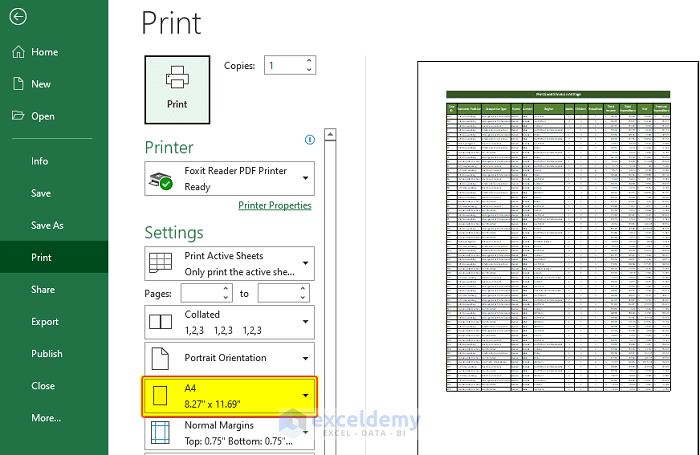5 Tips to Fit Excel Sheets on One Page in Mac

Many Mac users rely on Microsoft Excel for various data management tasks, from simple budgeting to complex financial analysis. However, one common challenge users face is fitting extensive data onto a single page for printing or presentation purposes. This can be crucial for clarity and professionalism, especially in professional settings where clear, concise presentation matters. Here's an in-depth look at five effective methods to ensure your Excel sheets print perfectly on one page:
Adjusting Page Setup

Your first line of defense is often adjusting the page setup. Here's how you can do it:
- Navigate to Page Layout: Go to Page Layout tab.
- Page Setup: Click on Margins to adjust the margins manually or choose from pre-set options like 'Narrow' for less white space.
- Orientation: Change the page orientation to landscape if your data is wider than it is tall, allowing more columns to fit within a single page.
💡 Note: Wider margins might result in less data fitting on each page, so balance is key.

Scaling Options

When adjusting page setup doesn't suffice, Excel offers scaling options:
- Scale to Fit: In the Page Layout tab, click on 'Scale to Fit', and set both 'Width' and 'Height' to 1 page. Excel will automatically adjust the size of your content to fit the specified dimensions.
- Manual Scaling: Alternatively, manually adjust the scale percentage under 'Scale' to shrink or enlarge your data.
🛑 Note: Scaling can make text smaller, so ensure it remains readable.
Adjusting Margins and Sheet Properties

Margins can often be the silent culprits in printing issues:
- Decrease Margins: Go to Page Setup, then reduce the Top, Bottom, Left, and Right Margins.
- Header/Footer: Reduce or eliminate headers and footers to reclaim some space.
📏 Note: Excel defaults to standard margins; tweaking these can give you additional space.
| Setting | Description |
|---|---|
| Page Orientation | Choose Landscape for wider documents. |
| Scaling | Adjust to fit within one page. |
| Margins | Narrow margins can fit more content. |
| Headers/Footers | Reduce or remove to gain space. |

Hiding Rows or Columns

Not all data is always necessary:
- Hide Unnecessary Data: Right-click on the row or column headers and choose 'Hide'. This reduces the data on the page without deleting it.
- Selective Printing: Use 'Print Selection' to print only the visible cells, ensuring unnecessary rows or columns don't take up space.
🔍 Note: Ensure you're not losing critical information by hiding rows or columns.
Using Print Preview and Repeat Headers/Footers

Before committing to print:
- Print Preview: Always use the 'Print Preview' feature under the File menu to review how your sheet will look when printed. This can help avoid surprises.
- Set Headers/Footers: Excel can repeat headers and footers on every printed page. This keeps your data structured and readable when it spans multiple pages.
👁 Note: Print Preview is your friend in ensuring the printout meets your expectations.

Fitting your Excel sheets to one page can save paper, streamline presentations, and enhance the professional presentation of your data. By understanding and using Excel's various settings for scaling, margins, and data presentation, you can manage your printouts effectively. Each method provides different tools to control how your spreadsheet appears on paper, and with these tips, you're now equipped to master this task. Remember to always double-check your settings in Print Preview to avoid any last-minute adjustments.
Can I undo the scaling if I change my mind?

+
Yes, you can undo scaling by resetting it to 100% or by using Excel’s Undo feature if you’ve just applied scaling.
Will changing margins affect the content of my Excel sheet?

+
Changing margins doesn’t alter your data or its layout within the spreadsheet. It only impacts how much data fits on each printed page.
How can I ensure headers repeat on every page when my data spans multiple pages?

+
Go to Page Setup, under the ‘Sheet’ tab, check ‘Rows to repeat at top’, and select the rows you wish to repeat on each page.